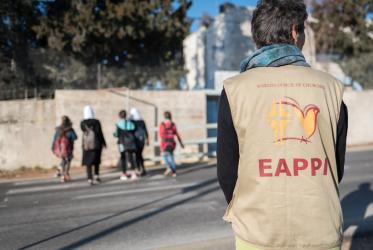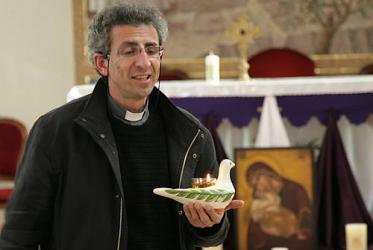Displaying 1 - 10 of 10
Dr Saïd Ailabouni: God is on the side of rejected, oppressed, occupied
12 September 2019
WCC seeks #JusticeAndPeace in the Holy Land
20 June 2017
WCC gravely concerned over Israel’s travel ban
09 March 2017
Israeli occupation puts strain on Palestinian Christians
02 April 2009






